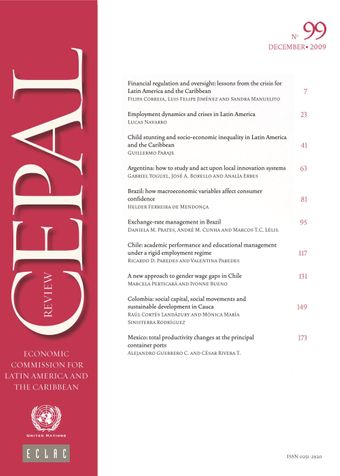-
Employment dynamics and crises in Latin America
- Source: CEPAL Review, Volume 2009, Issue 99, Dec 2009, p. 23 - 40
- Spanish
-
- 29 Dec 2009
Abstract
This study presents dynamic labour demand estimates based on information for 15 Latin American countries in the last three decades. It is found that recessions have a direct negative effect on total and wage employment creation. There is also a positive effect of recessions on employment-output elasticity and a negative one on employment-wage elasticity. These results can be interpreted as meaning that policies aimed at reducing labour costs would be of limited effectiveness in combating unemployment during recessions. On the other hand, policies to stimulate aggregate demand would have a stronger positive effect on labour market performance at times of crisis. In all cases, the effects are greater for wage employment than for total employment. This suggests that the increasing flows of workers towards the informal sector during recessions can mitigate the impact of lower economic growth on total employment.





